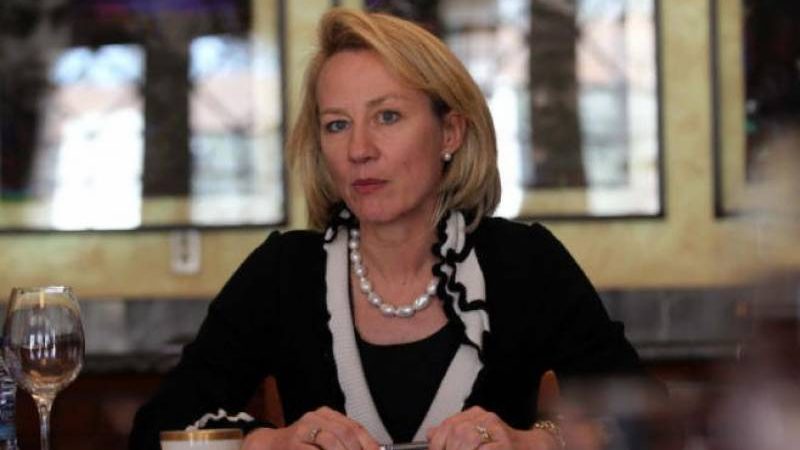In a first, US directly warns Pakistan against dangers of CPEC, offers a big alternate model to Islamabad: Report

WASHINGTON: (DNA) – The United States on Thursday warned Pakistan that it faced long-term economic damage with little return if China keeps pursuing its giant infrastructure push.
The top US diplomat for South Asia said the China-Pakistan Economic Corridor (CPEC) — heralded as a game-changer by both Asian countries — would profit only Beijing, adding that the United States offered a better model.
“It’s clear, or it needs to be clear, that CPEC is not about aid,” said Alice Wells, the acting assistant secretary of state for South Asia.
She noted that the multibillion-dollar initiative was driven by non-concessionary loans, with Chinese companies sending their own labour and material.
“CPEC relies primarily on Chinese workers and supplies, even amid rising unemployment in Pakistan,” Wells said at the Woodrow Wilson International Center for Scholars.
The corridor “is going to take a growing toll on the Pakistan economy, especially when the bulk of payments start to come due in the next four to six years,” she said.
“Even if loan payments are deferred, they are going to continue to hang over Pakistan’s economic development potential, hamstringing Prime Minister (Imran) Khan’s reform agenda,” she said.
The United States has gone on the offensive against China’s Belt and Road Initiative, a signature project of President Xi Jinping which aims to build ports, highways and railways around the world.
But Wells’ speech was unusually specific in warning of risks to Pakistan, a historic ally of the United States which has had a turbulent relationship with Washington in recent years over Islamabad’s alleged ties with Afghan Taliban.
While acknowledging that the United States could not come to Pakistan with offers from state-run companies, Wells said private US investment, coupled with US grants, would improve the troubled economy’s fundamentals.
“There is a different model,” she said. “Worldwide we see that US companies bring more than just capital; they bring values, processes and expertise that build the capacities of local economies.”
She pointed to interest in Pakistan by US companies including Uber, Exxon Mobil, PepsiCo and Coca-Cola, with the soft-drink makers together investing $1.3 billion in the country.
China’s main promises in Pakistan include the development of Gwadar on the Arabian Sea into a world-class port.
Beijing hopes to link Gwadar to the western Chinese region of Xinjiang, giving the world’s second largest economy more access to the oil-rich Middle East and reducing reliance on the dispute-ridden South China Sea.
Related News

‘King of reconciliation’: Bilawal says only Zardari can end political polarisation in country
ISLAMABAD, DEC 27: Pakistan Peoples Party (PPP) Chairman Bilawal Bhutto-Zardari has stressed the need forRead More

Naval Academy passes out 90 midshipmen and 34 SSC cadets
KARACHI, DEC 27 /DNA/ – The Commissioning Parade of 124ᵗʰ Midshipmen and 32ⁿᵈ Short ServiceRead More


Comments are Closed